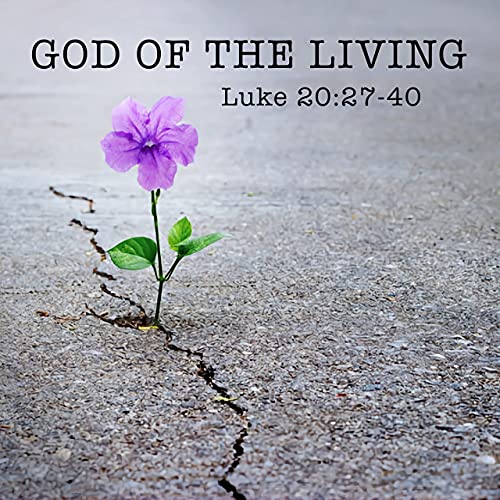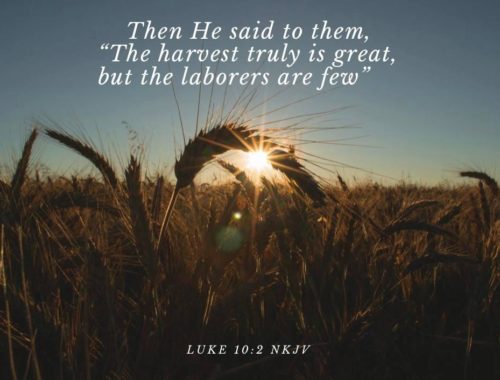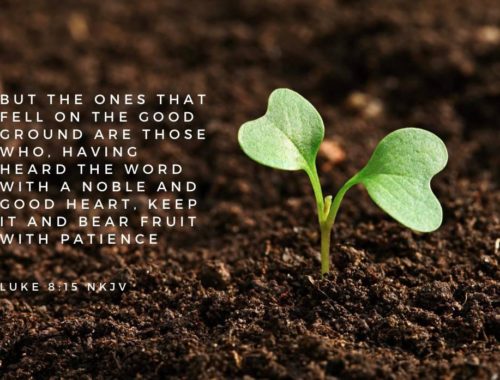Luke Chapter 20

As we enter the last days of Jesus, we find that the authority of Jesus continues to be challenged. In this chapter, we read of several separate incidents. Let’s see what we can learn from them.
By what authority are You doing these things? (vs 1-8)
The first group we see attacking Jesus were the chief priests and scribes. By now, they were fed up with Jesus as they felt their authority as religious leaders were being undermined by the words and actions of Jesus.
So now they challenged Jesus to tell everyone “by what authority are You doing these things? Or who is he who gave You this authority?” (vs 2)
Instead of answering them, Jesus asked whether John baptised with authority from heaven or man. Now they were stuck because they knew whatever answer they gave, they would be wrong. So they just said, “we do not know”.
What do I draw from this?
We need to make a stand. Either we are for Jesus or we are not.
Either we believe Jesus is God and we do not.
And if we believe, we must always confess it without fear and not be like the chief priests and scribes who chose the easy way out – “we do not know”.
32 “Therefore whoever confesses Me before men, him I will also confess before My Father who is in heaven. 33 But whoever denies Me before men, him I will also deny before My Father who is in heaven.
~ Matt 10:32-33 ~
The Rejected Stone has become the Chief Cornerstone (vs 9 – 19)
We are familiar with the Parable of the wicked winedressers where God is compared to the vineyard owner who leases it to His tenants, the people of Israel. However when God’s servants were sent to see if the vineyard bore fruit, the servants were beaten and sent away. And finally, when God sends His son Jesus, the evil winedressers had Him killed.
The consequence of this would be for the Vineyard owner to destroy the tenants and give the vineyard to others (we Gentiles). Naturally when they understood Jesus’s words, they shouted, “Certainly not!”
Then Jesus quoted Psalm 118:22 – ‘The stone which the builders rejected has become the chief cornerstone’ and follows up by saying “Whoever falls on that stone will be broken; but on whomever it falls, it will grind him to powder.”
Now the chief priests and scribes knew Jesus was talking about them and even though they wanted to arrest Him, they feared the people.
What reflections do I have on this?
While it is easy to categorise the chief priests and scribes as the evil winedressers today, have we considered whether we too have are like them?
Jesus sends His servants to see if we are bearing fruit. Yet at times (sometimes many a times), we reject the servants. We dismiss them and may even ridicule or mock the servants who are sent our way, simply because we do not like their message, or we do not agree with their views etc. God’s intentions are seen as something bad.
But rejecting Jesus is useless. He is not just the Rock but the Chief Cornerstone – on which our entire faith is based upon. If our faith is based rightly on Jesus, the rest of the building blocks of our faith will be based correctly and our faith will endure. But if our faith is not based on the Chief Cornerstone, then whatever your ‘faith’ is, it will mean nothing and will collapse.
Worse still, if we are not with Jesus, we are against Him. And the result is that we
If what you believe about Jesus is set correctly, the rest of the building blocks of your faith will work themselves out and your faith will endure. If you what you believe about Jesus is incorrect, nothing you add to it will correct the error and your ‘faith’ will risk collapse and we will not have eternal life.
Render to God the things the things that are God’s (vs 20 – 26)
This is the famous “test” that chief priests tried to catch out Jesus with the question, “Is it lawful for us to pay taxes to Caesar or not?” (vs 22). Failing in religious questions, they resorted to political challenges now.
Now if this question was asked of me, I would not know how to answer – cause one answer would anger the Romans, and the other answer would anger the Jews.
But the famous answer of Jesus: “Render therefore to Caesar the things that are Caesar’s, and to God the things that are God’s.” (vs 22) left the challengers stumped and speechless. And what a great answer it was!
Is there a lesson here for me?
In our church, we normally steer away from politics and concentrate on the work of the Gospel. And this should be the case always.
As we live in this world, we are living under governments and need to be subject to the governing authorities…. even when at times we are not happy (the recent GST hike may come to mind). And Paul gives very clear instructions on what we should do in Romans 13:1-7.
But the bigger question is whether we have rendered to God the things that are God’s?
In what way have we given to God what is rightfully His? Are there areas in our life that we shun away from rendering to God His due? I am sure, if you are like me, when one seriously ponder this question, a whole list may pop up in your mind (too shameful to reveal).
But let us strive to give to God what is God’s – our best in all that we can and should do.
What Happens After Resurrection? (vs 27 – 40)
Now it was the Sadducees turn to challenge Jesus. And they came up with this complicated sounding question about the woman who had to marry 7 brothers because each one died – whose wife is she at the resurrection?
Now the Sadducees did not believe in the resurrection and was trying to prove how foolish the idea was.
But the answer of Jesus again is spot on. God is not the God of the dead but of the living. And it was interesting that they replied to Jesus, “Teacher, You have spoken well.”
Er… what did I learn?
We all long to go to heaven one day. And while the Bible gives us glimpse of an idea what heaven could be like, and heard from testimonies or what some believers saw in visions, in Paul’s case, he said he “heard inexpressible words, which it is not lawful for a man to utter.” (2 Cor 12:4).
So we need to know and believe that life right now is not the be all and end all. Death is not the end but the beginning.
We will be held accountable to God for how we life our lives now. So there is no need to imagine hypothetical scenarios of what happens after the resurrection but be concerned on how we act and behave now – to be certain of our resurrection to life and not to condemnation.
The Lord said to my Lord (vs 41-44)
Now it was Jesus’ turn to question back all His challengers.
Here Jesus quoted from Psalm 110:1 to ask – how can the Messiah be also David’s son, if David himself called Him Lord?
Jesus did not provide an answer and neither did anyone try and give an answer.
But Jesus ended with ominous words:
“Beware of the scribes, who desire to go around in long robes, love greetings in the marketplaces, the best seats in the synagogues, and the best places at feasts, 47 who devour widows’ houses, and for a pretense make long prayers. These will receive greater condemnation.”
~ Luke 20: 46-47 ~
Last learnings for the day
Jesus was pointing out clearly to the people that even David – the king that they all honoured – recognized that Christ had authority over Him. Jesus was showing that He had the authority and that resurrection would prove that He had the power over all things.
But just knowing that Jesus is the Lord of all is not good enough. The warnings of Jesus at the end were for those who are proud to be part of David’s kingdom but do not behave rightly.
Like we who are the spiritual Israelites. We may do the right things – greet one another, sit right in front in church.. but if we do other things that shows our faith is not genuine – like making a pretense of long prayers, bullying other etc… there awaits a greater condemnation.

